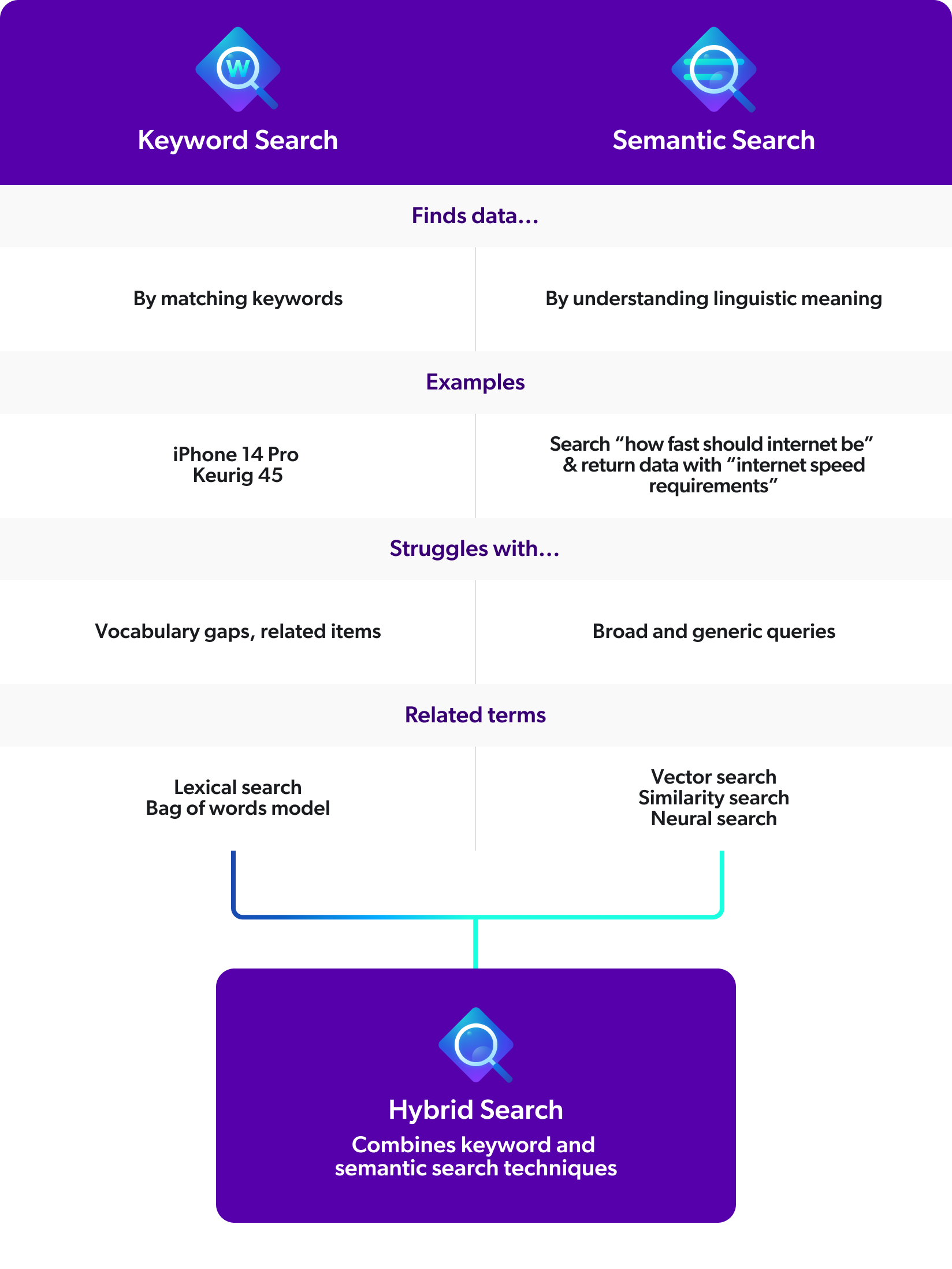

A user enters a query in the search bar, and a traditional search engine compares it against the data in its index to retrieve data that matches that query. This is often referred to as keyword search, or sometimes lexical search.
A search engine that leverages artificial intelligence (AI), sometimes also referred to as an AI search engine or AI powered search, retrieves data a little differently. It still compares a query against indexed data, but it doesn’t just look for exact matches. Often, the search result it returns is further refined by semantic search to uncover the users intent or contextual similarity to layer on additional information to that query, like who’s asking or what actions they took along with entering that query.
AI in search engines often means employing both keyword/lexical techniques along with semantic or vector search to achieve this precision in search results, resulting in hybrid search. These search techniques create a foundation for machine learning, like natural language processing (NLP), large language models, and others to offer personalized search. For example, NLP techniques allow a searcher to ask a computer a question in the same way they might ask another person — no boolean operators required.
Whether in ecommerce, customer support, or digital workplace, an AI search engine’s goal is to quickly connect a searcher with the answer they’re looking for.


No — AI search is here to stay and is becoming the user expectation. Users want fast, consumable answers vs. clicking through the multiple data links that keyword search serves up. AI search delivers real, measurable value. It goes beyond basic keyword matching by using machine learning to understand context, predict intent, and personalize results. Organizations using AI search often see improvements in self-service success, support efficiency, and conversion rates.
With Coveo, you connect to your enterprise data where it lives – no need for costly data migrations. While more data can enhance results over time, AI search platforms like Coveo are designed to deliver value from day one. They use pre-trained models and contextual signals — like click behavior and metadata — to improve relevance even in environments with limited historical data. Our robust platform will also help you identify gaps in your data and search trends, so you know what your customers are looking for and where you have holes to fill.
No. AI augments human decision-making by surfacing the most relevant information quickly and consistently. It empowers users to make better, faster decisions — it doesn't replace them.
Google is built for the open web. AI-powered enterprise search platforms are built to understand your unique content, users, and goals — offering more relevant, secure, and personalized results within your enterprise’s digital ecosystem.
AI search improves case deflection, speeds up resolution, and enhances self-service by delivering contextually relevant knowledge articles, FAQs, and past cases to both customers and agents in real time.
Learn more about how AI search can help with customer support.
Yes. Coveo integrates seamlessly with leading CRMs like Salesforce and Microsoft Dynamics, enriching search experiences within support portals, agent consoles, and customer communities.
Learn more about how AI search enables omnichannel customer service.
Open-source tools offer flexibility but often require extensive customization, maintenance, and in-house expertise. Enterprise solutions like Coveo are turnkey, scalable, and come with built-in AI models, security, support, and connectors — so you can focus on outcomes, not infrastructure.
Build vs buy search? Choosing the best path for your enterprise.